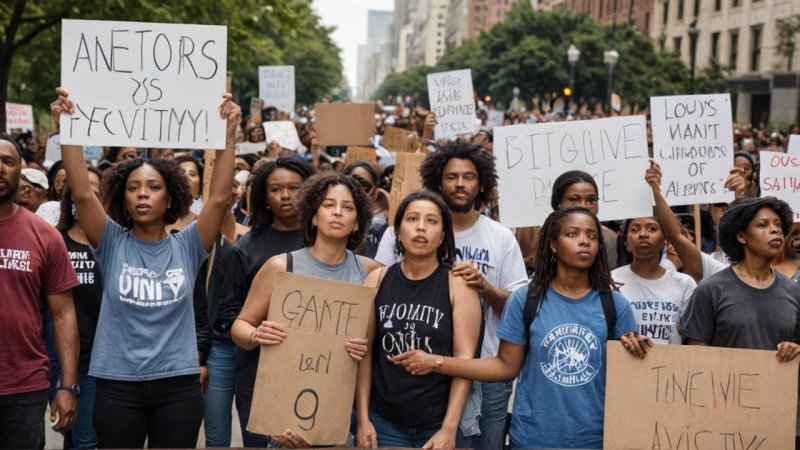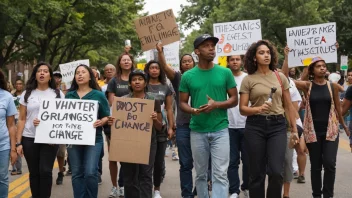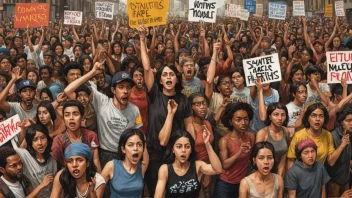Throughout history, social movements have played a pivotal role in shaping societies, influencing policies, and driving transformative change. From the suffragette movement advocating for women's rights to the Civil Rights Movement demanding equality for African Americans, these collective efforts have not only highlighted societal injustices but have also mobilized communities to seek redress. In an era where social media amplifies voices and connects individuals across the globe, understanding the dynamics of social movements is more relevant than ever. This article delves into the various aspects of social movements, exploring their origins, strategies, successes, and the challenges they face in effecting meaningful change.
Defining Social Movements
Social movements are organized efforts by a group of people to enact, stop, or reverse social, political, or economic change. They typically arise in response to perceived injustices or grievances within society. While the goals of social movements can vary widely—from civil rights and environmental protection to labor rights and anti-globalization—they share common characteristics, including collective action, a shared identity, and a commitment to a cause. Understanding these foundational elements is crucial in analyzing how social movements operate and the impact they have.
The Historical Context of Social Movements
Social movements have existed for centuries, often emerging during periods of social upheaval or change. The Industrial Revolution, for example, catalyzed labor movements as workers sought better conditions and fair wages. Similarly, the civil rights era of the 1960s in the United States marked a significant turning point, as activists challenged systemic racism and demanded equal rights. Each movement is often a response to the socio-political climate of its time, shaped by the cultural, economic, and technological contexts in which they arise.
Strategies Employed by Social Movements
Successful social movements employ a variety of strategies to mobilize support and effect change. These strategies can include:
- Grassroots Organizing: Building a strong base of local support through community engagement and activism.
- Public Awareness Campaigns: Utilizing media and public relations to raise awareness about issues and garner support.
- Direct Action: Engaging in protests, sit-ins, or demonstrations to draw attention to a cause.
- Lobbying and Advocacy: Working within political systems to influence policymakers and legislation.
- Coalition Building: Forming alliances with other organizations and movements to strengthen collective efforts.
Each of these strategies can be tailored to the specific goals and context of the movement, allowing for flexibility and adaptability in the face of opposition.
The Role of Technology and Social Media
In recent years, technology has transformed the landscape of social movements. Social media platforms like Twitter, Facebook, and Instagram have become powerful tools for activists, enabling them to reach wider audiences and mobilize support more quickly than ever before. Hashtags such as #BlackLivesMatter and #MeToo have not only raised awareness about critical issues but have also created global conversations that transcend geographical boundaries. Technology facilitates real-time communication and coordination, allowing movements to respond swiftly to events and engage supporters in innovative ways.
Case Studies of Successful Social Movements
Several social movements have achieved notable successes, serving as case studies for understanding the dynamics of activism:
The Civil Rights Movement
The Civil Rights Movement in the United States (1950s-1960s) is a prime example of a successful social movement. Through a combination of grassroots organizing, strategic litigation, and nonviolent protests, activists like Martin Luther King Jr. and Rosa Parks challenged systemic racism and segregation. The movement's efforts culminated in landmark legislation, including the Civil Rights Act of 1964 and the Voting Rights Act of 1965, fundamentally altering the legal landscape for racial equality.
The Environmental Movement
Emerging in the mid-20th century, the environmental movement has brought attention to issues such as pollution, climate change, and biodiversity loss. Organizations like Greenpeace and the Sierra Club have mobilized millions to advocate for environmental protection and sustainability. The Paris Agreement of 2015, a global accord to combat climate change, can be seen as a significant achievement of this movement, highlighting the importance of collective action on a global scale.
Challenges Faced by Social Movements
Despite their successes, social movements often face significant challenges. These can include:
- Opposition from Authorities: Movements may encounter resistance from government entities or corporations that feel threatened by their demands.
- Internal Divisions: Differences in ideology or strategy can lead to fragmentation within movements, weakening their overall effectiveness.
- Media Misrepresentation: Movements can be misrepresented or marginalized in mainstream media, hindering public support.
- Burnout and Mobilization Fatigue: Sustaining momentum over time can be challenging, leading to decreased participation and engagement.
The Future of Social Movements
As we move further into the 21st century, the role of social movements in effecting change remains vital. With the rise of global issues such as climate change, social inequality, and human rights violations, the need for collective action is more pressing than ever. Future movements will likely continue to leverage technology and social media while adapting to the changing political and social landscapes. The ability to mobilize quickly and effectively will be crucial in addressing emerging challenges and advocating for justice and equality.
In conclusion, social movements are powerful agents of change, capable of transforming societies and shaping policies. By understanding their origins, strategies, and challenges, we can appreciate the significant impact they have had throughout history and continue to have today. As individuals and communities rally together to advocate for their rights and values, the potential for meaningful change remains alive and well, underscoring the importance of solidarity and collective action in our quest for a better world.






